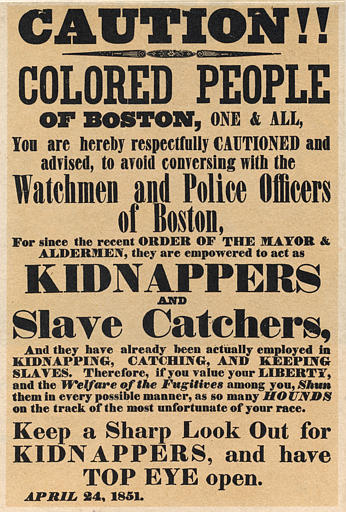Fugitive slaves Legal status, laws, etc. United States
Enlarge text Shrink text- Work cat.: Supplement to the New-York legal observer, containing the report of the case in the matter of George Kirk, a fugitive slave, heard before the Hon. J.W. Edmonds, circuit judge, 1847
The fugitive slave laws were laws passed by the United States Congress in 1793 and 1850 to provide for the return of slaves who escaped from one state into another state or territory. The idea of the fugitive slave law was derived from the Fugitive Slave Clause which is in the United States Constitution (Article IV, Section 2, Paragraph 3). It was thought that forcing states to return fugitive slaves to their masters violated states' rights due to state sovereignty and was believed that seizing state property should not be left up to the states. The Fugitive Slave Clause states that fugitive slaves "shall be delivered up on Claim of the Party to whom such Service or Labour may be due", which abridged state rights because apprehending runaway slaves was a form of retrieving private property. The Compromise of 1850 entailed a series of laws that allowed slavery in the new territories and forced officials in free states to give a hearing to slave-owners without a jury.
Read more on Wikipedia >
 Topic
Topic





